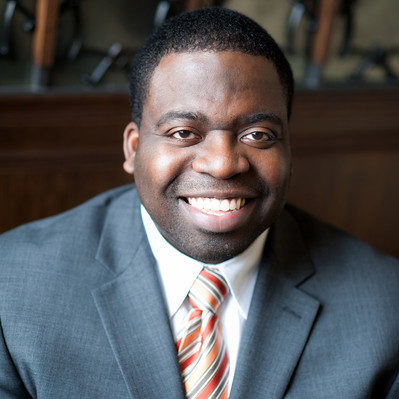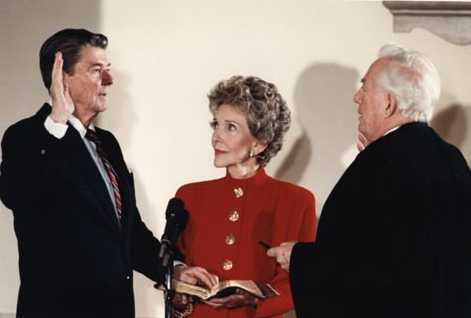Michael Reagan says his father, US President Ronald Reagan, had black friends he played football with, had a mother who was completely cool with him being friends with blacks and knew a black girl went to his college because she was in the yearbook. Because of that long history, President Reagan was a good friend to black people who knew him personally whereas blacks like Jesse Jackson, Andrew Young and Bob Johnson: totally over Obama.
But the past two years have made one thing clear: Ronald Reagan was a far better friend to black Americans than Barack Obama has been
via FoxNews.com – MICHAEL REAGAN: Ronald Reagan — More of a Friend to Blacks Than Obama?.
Oh wait, does he mean, Reagan was a better President for black Americans than Obama? OOooooh. Well…that’s different. Well the war on drugs sucked for black people. Reagan’s administration was pretty much responsible for screwing black people both ways. Coming with stuff like the Iran Contra Scandal and going with new draconian policy.
It was during the presidency of Ronald Reagan that narcotics law enforcement morphed into drug war overdrive with a series of ever more draconian drug laws and an attitude of repressive “zero tolerance” emanating from the White House. Here are some of the lowlights of Reagan-era drug policy:
- Erosion of the Posse Comitatus Act, the 1868 law that forbids federal troops from engaging in domestic law enforcement activities. It was the erosion of Posse Comitatus that led to the killing of US citizen Esequiel Hernandez by US Marines outside Redford, Texas, and the use of military equipment and personnel against the Branch Davidians in Waco in 1993 (under the pretext that they were cooking meth).
- Zero-tolerance “Just Say No” as a public policy approach to drug use. “Not long ago in Oakland, California, I was asked by a group of children what to do if they were offered drugs,” explained Nancy Reagan in 1986. “And I answered, ‘Just Say No.’ Soon after that those children in Oakland formed a Just Say No Club and now there are over 10,000 such clubs all over the country.”
- Passage of the 1986 crime bill, notable for the imposition of mandatory minimum sentences for the first time since 1970. This act also created the federal Sentencing Commission and the current system of federal sentencing guidelines, which did away with parole in the federal system, ensuring that prisoners would serve at least 85% of their sentences. And it included asset forfeiture.
- Passage of the Anti-Drug Abuse Act of 1988, which established a federal death penalty for “drug kingpins.” Reagan signed that bill in his wife’s honor.
Aside from the crack cocaine era, Reagan wasn’t the best for blacks politically either.
In 1984, he successfully campaigned for reelection on a “Morning in America” theme. But his presidency was a long and dreary night for African Americans. Consider this record. Reagan:
- Appointed conservative judges, like Supreme Court Justice Antonin Scalia, who continue to issue rulings to the detriment of African Americans. Walters notes that just 2 percent of Reagan’s judicial appointments were black.
- Began his 1980 presidential campaign in Philadelphia, Miss., near the site where three civil rights workers were murdered in 1964.
- Supported racism with remarks like those that characterized poor, black women as “welfare queens.”
- Fired U.S. Commission on Civil Rights members who were critical of his civil rights policies, including his strong opposition to affirmative action programs. One of the commissioners, Mary Frances Berry, who now chairs the Commission, recalls that the judge who overturned the dismissal did so because “you can’t fire a watchdog for biting.”
- Sought to limit and gut the Voting Rights Act.
- Slashed important programs like the Comprehensive Employment and Training Act (CETA) that provided needed assistance to black people.
- Appointed people like Clarence Thomas, who later became a horrible Supreme Court Justice, to the Equal Opportunity Commission; William Bradford Reynolds, as assistant attorney general for civil rights; and others who implemented policies that hurt black people.
- Doubted the integrity of civil rights leaders, saying, “Sometimes I wonder if they really mean what they say, because some of those leaders are doing very well leading organizations based on keeping alive the feeling that they’re victims of prejudice.”
- Tried to get a tax exemption for Bob Jones University, which was then a segregated college in South Carolina .
- Defended former Sen. Jesse Helms’ “sincerity” when that arch villain of black interest questioned Martin Luther King’s loyalty.
The federal budget during the Reagan years tells the tale in stark, dollar terms. According to the Center on Budget and Policy Priorities, as reported by the Los Angeles Times as Reagan left office in 1989, programs that helped black America suffered greatly during his tenure.
via Reagan: A contrary view – U.S. news – Life – Race & ethnicity – msnbc.com.
Didn’t Reagan cut school lunches too? In addition my parents are from Angola, so the whole calling brutal UNITA general and Blood Diamond supplier for De Beers Jonas Savimbi a freedom fighter…didn’t really endear my family to Reagan.
J onas Savimbi, who has died aged 67, was, for 20 years, a figure as important in southern Africa as Nelson Mandela, and as negative a force as Mandela was positive. For the past 10 years, using the proceeds of smuggled diamonds from eastern and central Angola, he fought an increasingly pointless and personal bush war against the elected government in which hundreds of thousands of peasants were killed, wounded, displaced, or starved to death. His death in fighting in the eastern province of Moxico was greeted with celebrations in the Angolan capital, Luanda.
It was a long fall from his heyday in the 1980s, when Chester Crocker, the longest serving US assistant secretary of state, and the Reagan administration’s top official for Africa described him as “one of the most talented and charismatic of leaders in modern African history”. Savimbi was the toast of the Reagan White House, feted by the rightwing establishment in many countries and a friend to African tyrants. He was a willing tool of the cold war, the key figure in America’s and apartheid South Africa’s destruction of independent Angola’s nationalist ambitions, and responsible for suffering and death on a scale barely comprehensible outside his ruined country.
But my parents weren’t from here. Yea, they’re citizens now, but who wants to talk about a third world country filled with land mines (supplied by the US, Portugal, China, USSR and others) or pressuring Afrikaners to end apartheid in 1980s South Africa, right? My parents weren’t American citizens then and Nelson Mandela was classified as a terrorist by the apartheid regime in South Africa. Surely there must be tons of stories from the decades about Reagan hooking up the Blacks that were real ‘Merkins!
[…]Reagan opposed the Civil Rights Act at the time of its passage, calling it an unwarranted intrusion on the rights of businesses, and never repudiated his former stand. Or that as Governor of California, Reagan dismissed the struggle for fair and open housing, by saying that blacks were just “making trouble,” and had no intention of moving into mostly white neighborhoods. […]Maybe they have burned in their memories the way Reagan attacked welfare programs with stories of “strapping young bucks” buying T-Bone steaks, while hardworking taxpayers could only afford hamburger, or how Reagan fabricated a story about a “welfare queen” from Chicago with 80 names, 30 addresses, and 12 Social Security cards, receiving over $150,000 in tax-free income. That Reagan picked Chicago as the site of this entirely fictional woman, and not some mostly white rural area where there were plenty of welfare recipients too, was hardly lost on African Americans.
Perhaps black folks and other people of color remember the words of former Reagan Education Secretary Terrell Bell, who noted in his memoir how racial slurs were common among the “Great Communicator’s” White House staffers, including common references to Martin Lucifer Coon, and “sand niggers.”
Perhaps they recall that Reagan supported tax exemptions for schools that discriminated openly against blacks.
Perhaps they recall how his Administration cut funds for community health centers by eighteen percent, denying three-quarters-of-a-million people access to services; how they cut federal housing assistance by two-thirds, resulting in the loss of about 200,000 affordable units for renters in urban areas.
Or how Reagan opposed sanctions against the racist South African regime, and even denied that apartheid, under which system blacks could not vote, was racist, noting that its policies were “more tribal than racial.
via Tim Wise » Reagan, Race and Remembrance: Reflections on the American Divide.
In light of the facts, I guess I could write a bunch of bad words describing Micheal Reagan and his feeble arguments, but I’ve wasted enough time on his nonsense, so I will close with this: without Reagan, coke rap and trap music would never be as big as it is today. So there’s that.

